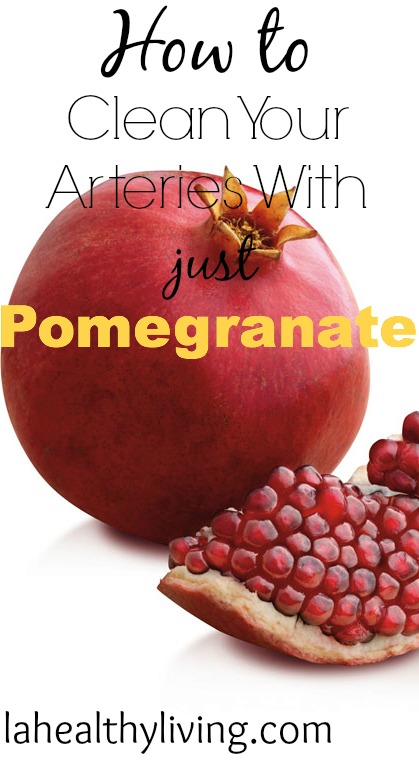Pomegranates have been found to be one of the most antioxidant-rich fruits in the world. They are among the most popular, nutritionally rich fruits. Pomegranate is an ancient food that has been consumed since antient times and is mentioned throughout the Old Testament of the Bible and the Homeric Hymns of Ancient Greece. The bible consistently uses pomegranates to symbolize the blessing of fruitfulness.
Pomegranate is an excellent source of essential amino acids, vitamin A, C, E, B5, B3 or Niacin, Iron, folic acid, potassium, and antioxidant polyphenols. The iron in pomegranate helps to prevent anemia symptoms that include dizziness, weakness, exhaustion. The research shows that Pomegranate has a very high level of polyphenol content which is a powerful antioxidant. Researches show that the content of antioxidants in pomegranate is higher than that of red wine, or green tea. In fact, pomegranate contains more antioxidants than any other natural food source. Thus, the major health benefits come from the high levels of antioxidants, specifically polyphenols, tannins and anthocyanins which are important in fighting free radicals which cause various types of diseases and aging.
How To Clean Your Arteries With Just Pomegranate
A new study published in the journal Atherosclerosis confirms that pomegranate extract may prevent and/or reverse the primary pathology associated with cardiac mortality: the progressive thickening of the coronary arteries caused by the accumulation of fatty materials known as atherosclerosis. (source) Pomegranate was found to not only improve blood flow in the cardiovascular system of heart patients, but also helped to reduce inflammation and high blood pressure. Pomegranates aid in reducing excess triglycerides, which form as a result of a diet high in processed foods. Removing these excess triglycerides may help to ward off heart attacks and various heart problems.
11 Ways to Maximize Your Health With Pomegranates
- Pomegranate reduces body fat. According to a study (here) from the University of Edinburgh, pomegranates can help reduce visceral fat – the most dangerous kind of fat.
- Prevention of heart disease due to the high content of the antioxidants.
- Reduction of bad LDL cholesterol levels.
- Helping in reducing the plaque deposits in the arteries and prevent clotting of blood.
- The research (here) has showed that regular consumption of pomegranate is effective against prostate cancer, breast cancer, diabetes, and lymphoma.
- The vitamin C in pomegranate helps to fight any kind of infections.
- Possession of anti-inflammatory properties which can help in bringing the inflammation down.
- Pomegranate is also good for your teeth since it possesses antibacterial compounds which can be helpful in preventing dental plaque.
- Pomegranate regenerates liver. Pomegranate juice is able to regenerate your liver after it has been damage.
- Pomegranate protects DNA. Pomegranate contains phytonutrients and antioxidants that interact with your DNA to protect it. (here)
- Pomegranates help protect Newborns. According to a study published in Pediatric Research, drinking pomegranate juice during pregnancy helps protect newborns’ brains during traumatic births.
How to Select
Choose large, firm and smooth-skinned pomegranate. A good quality pomegranate should have rich color, and has no cuts or blemishes.
How to store
Pomegranate can be stored at cool and dry place for up to one month. It can last for about two months if kept refrigerated.
How to prepare
Slice off the top. Score the skin in quarters and open it up. Then put each quarter underwater and use your fingers to ream the seeds from the inside. The seeds sink, and the white membrane floats. Pour off the membranes so the seeds remain.Besides eating the seeds raw, you can also use them as garnishes for salads and desserts.
This content will be shown after all post
